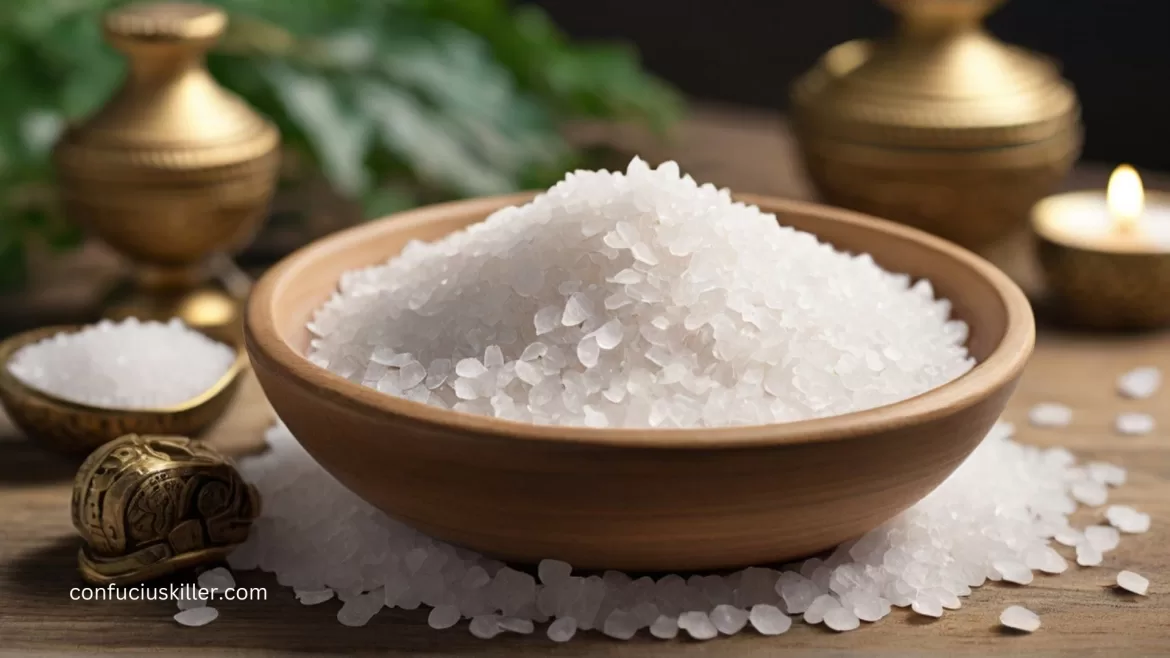My anti-aging skin care routine includes making a homemade toner using sea salt and pure water. Carrying a mini bottle of sea salt toner would at least help keep our skin hydrated. Being a woman over 50 years old, I definitely benefit from such a sea salt hydration routine for anti-aging skin care.
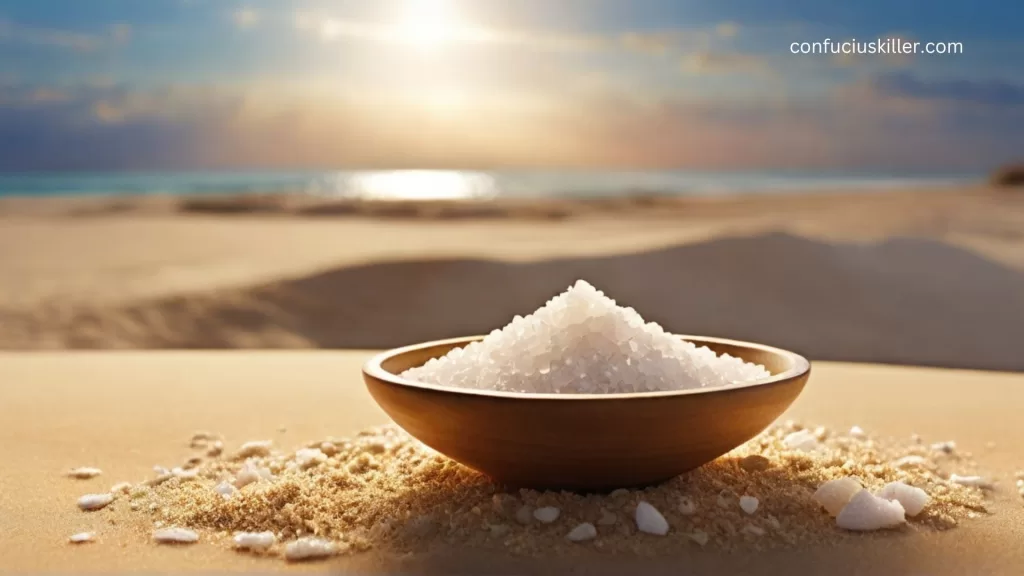
Disclaimer: None of the content in this article constitutes professional advice. What works for me might not suit you, as individuals’ experiences can vary widely. It’s always a good idea to consult with a professional if there are any concerns.
How to make a homemade toner?
Here’s a simple guide for making a homemade toner using sea salt and pure water:
What You Need
- Sea salt
- Pure or distilled water
- Optional: Essential oils (such as lavender or tea tree oil)
- Mixing glass
- Spray bottle or mini container
- Optional: Measuring spoons, Measuring cup, Funnel
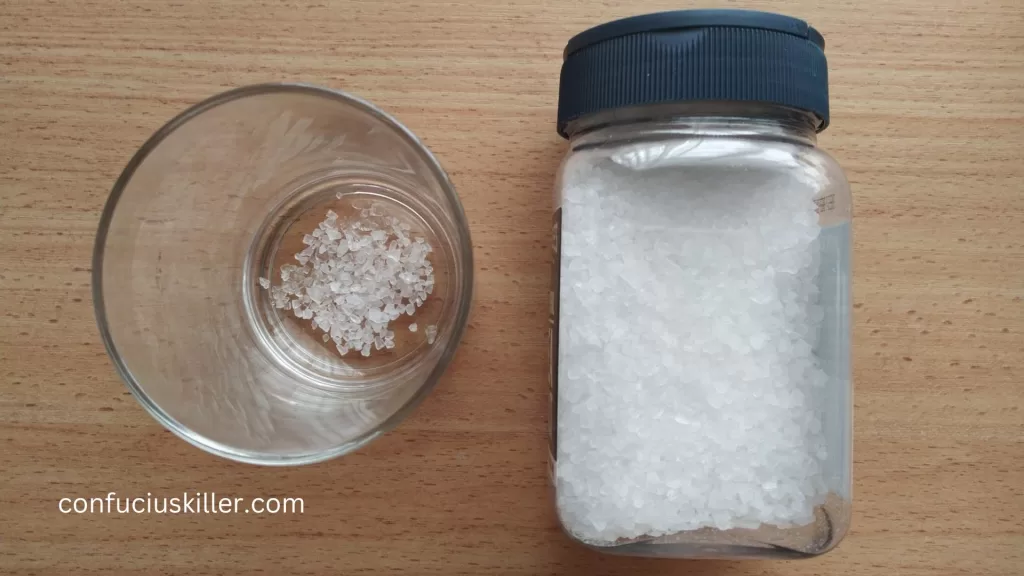
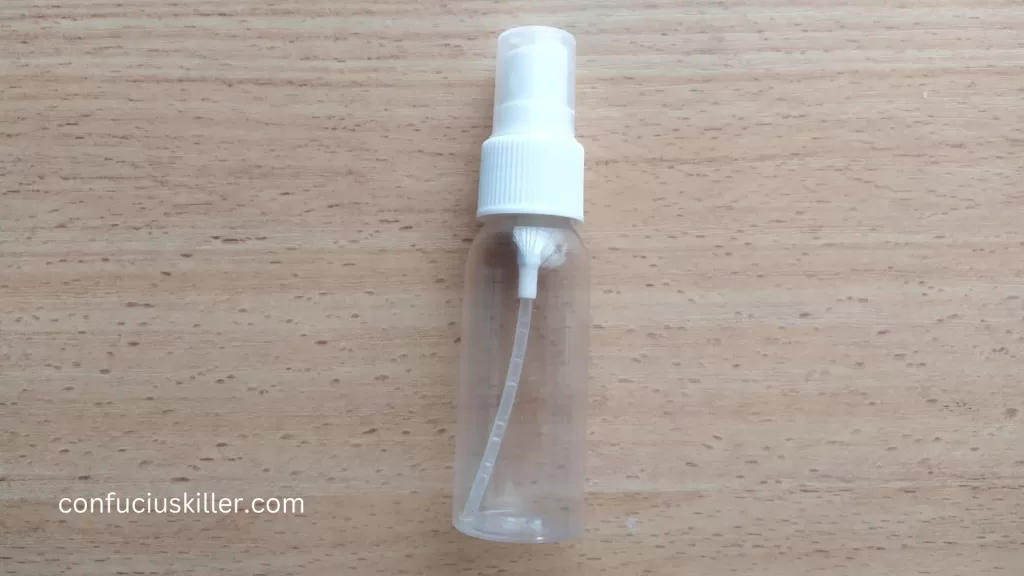
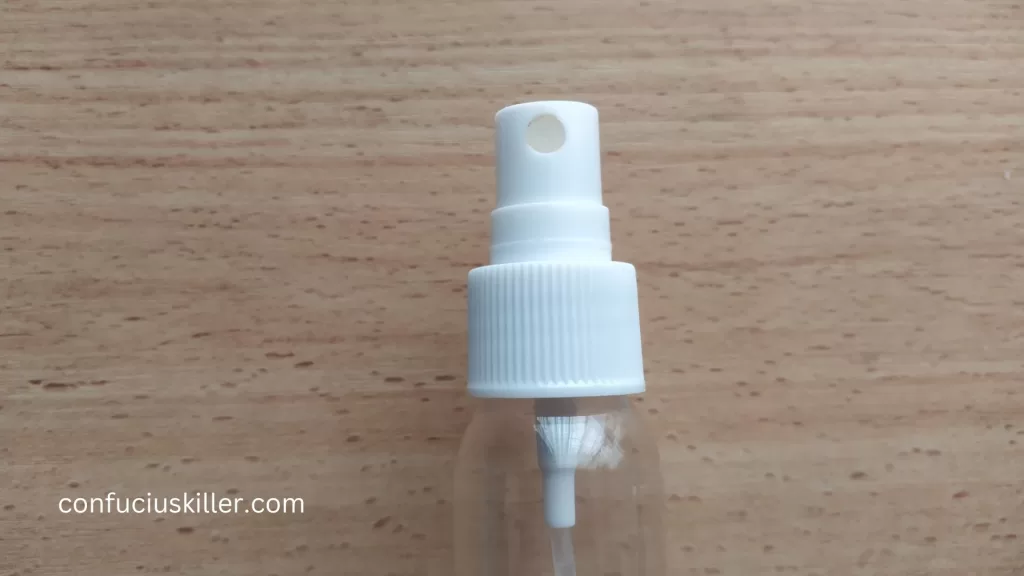
Instructions
- Mix the Ingredients: For a basic toner, you’ll typically use a ratio of 1 teaspoon of sea salt to 8 ounces (1 cup) of water. But you can adjust the ratio according to your preference and skin sensitivity. I didn’t follow a strict requirement of ratio as making a toner is not rocket science.

- I just pour a certain amount of sea salt into a mixing glass. Then add the pure water to the glass and stir until the salt is completely dissolved.
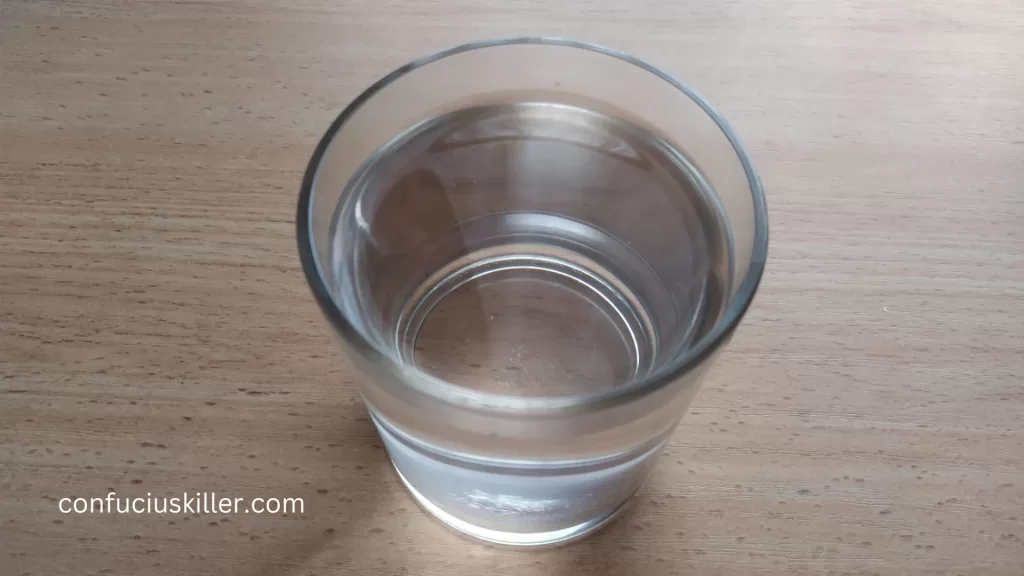
- Optional – Add Essential Oils: If desired, you can enhance the toner by adding a few drops of essential oils. Lavender oil is soothing and great for all skin types, while tea tree oil has antibacterial properties and is beneficial for acne-prone skin. Stir the essential oil into the water and salt mixture.
- Transfer to a Container or a Glass: When you mix the toner well, use a funnel (or whatever suits you) to transfer it into a clean spray bottle or any other container of your choice. Just make sure the spray bottle is clean and dry before pouring the toner in.
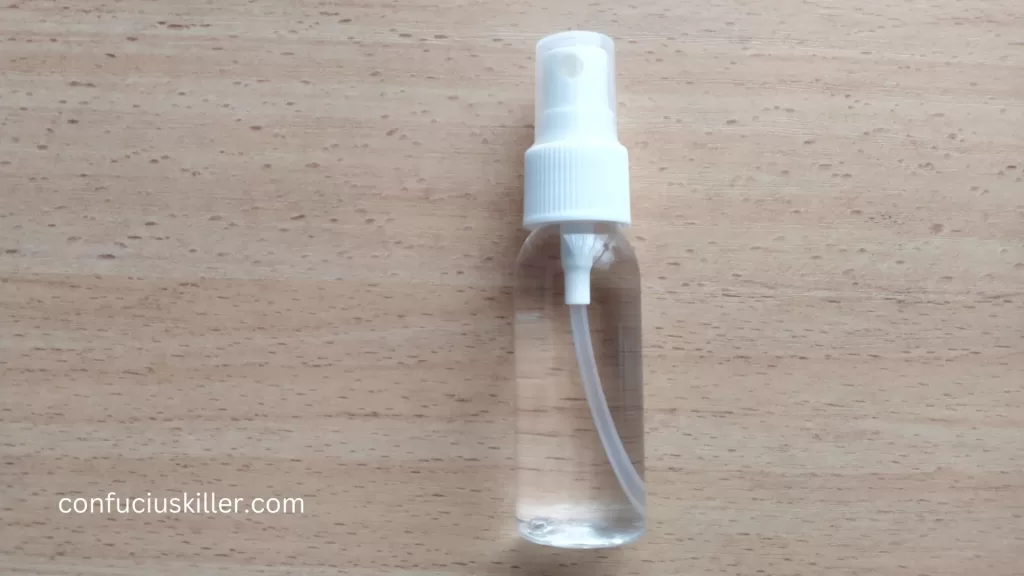
- Usage: To use the toner, shake the bottle well to evenly distribute the ingredients. After cleansing your face, spray the toner directly onto your skin, avoiding the eye area. Gently pad the toner over your face and neck. Allow it to air dry before applying any moisturizer or serum if that suits you.
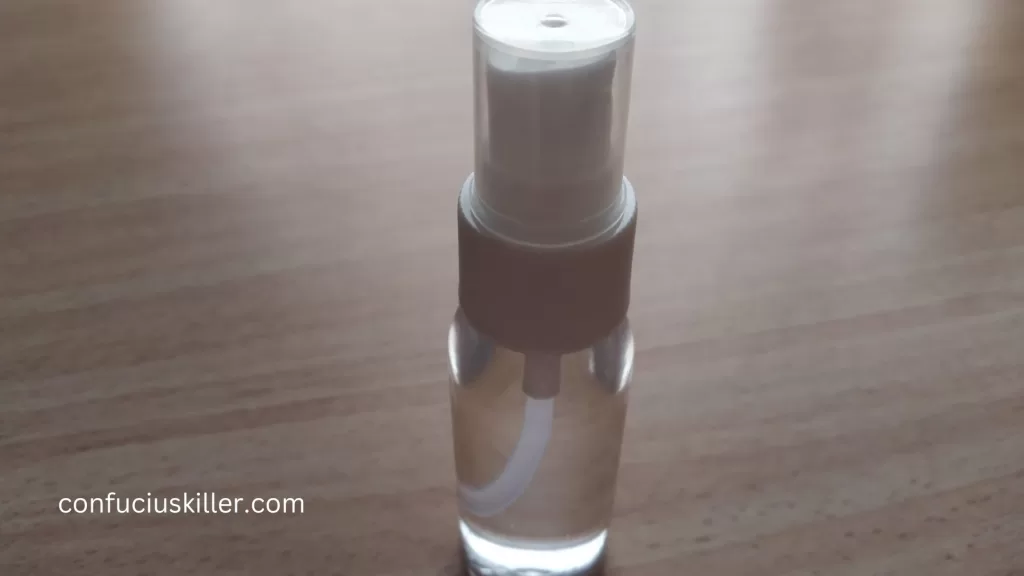
- Frequency: You can use this homemade toner once or twice a day, depending on your skin’s needs and sensitivity. If you notice any irritation or discomfort, discontinue use and please consult with a dermatologist.
Voila! You now have a simple homemade toner using sea salt and pure water that can help refresh and tone your skin.
Why is sea salt good for skin care?
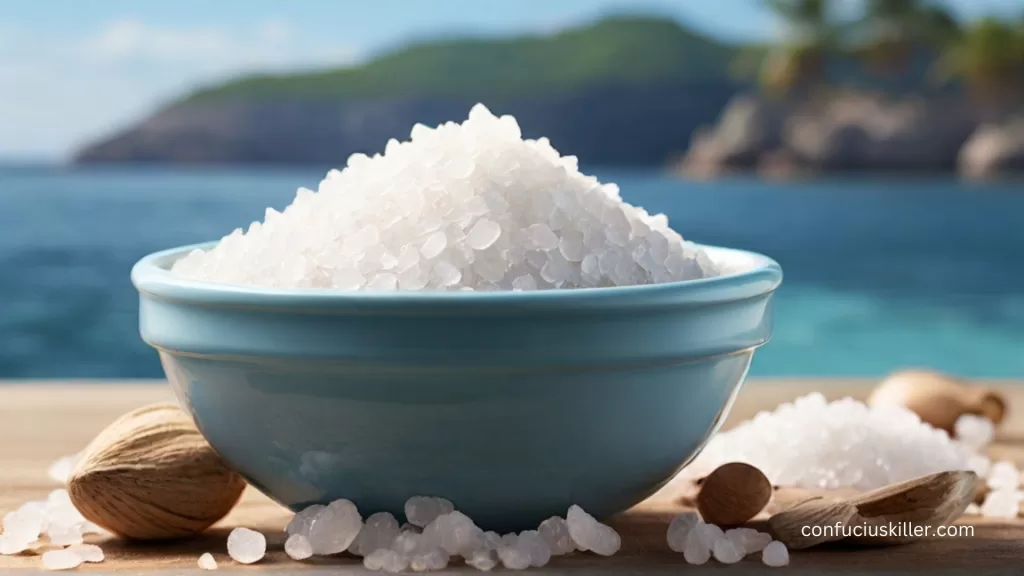
Sea salt is often praised for its potential benefits in skincare. Despite the use of sea salt in skincare has both anecdotal and scientific support, it’s important to understand its properties and how they may affect different skin types:
exfoliation
Sea salt contains natural minerals and coarse texture, making it an effective exfoliant. When used in skincare, it can help remove dead skin cells, unclog pores, and promote smoother, softer skin, as well as cell turnover, which can improve skin texture and reduce the appearance of blemishes and fine lines. Exfoliation can also improve the absorption of other skincare products.
Mineral content
Sea salt is rich in minerals like magnesium, calcium, and potassium, and sodium chloride, which are beneficial for the skin. These minerals can help hydrate the skin, balance oil production, and promote healing. For example, magnesium helps to retain moisture in the skin, calcium promotes cell renewal, potassium maintains electrolyte balance, and sodium chloride has antibacterial properties.
antibacterial properties
Sea salt has natural antibacterial properties, which can help fight acne-causing bacteria on the skin. This makes it particularly beneficial for those with oily or acne-prone skin. By reducing the population of harmful bacteria on the skin’s surface, sea salt may help prevent breakouts and promote clearer, healthier skin.
skin detoxification
While there is limited scientific evidence to support this claim, many people find sea salt baths or scrubs to be relaxing and soothing for their skin. People have been using salt in various cultures for its purifying properties. Salt baths or scrubs may help remove pollutants, excess oil, and other debris from the skin, leaving it feeling refreshed and revitalized.
skin barrier function for anti-aging
Sea salt can help support the skin’s natural barrier function, which is essential for maintaining hydration and protecting against environmental stressors. By gently exfoliating and replenishing minerals, sea salt may enhance the skin’s barrier function, resulting in smoother, more resilient skin.

However, it’s essential to note that sea salt may not be suitable for everyone or every skin condition:
- Sensitive Skin: Sea salt can be abrasive, especially if used in high concentrations or on sensitive skin. Individuals with sensitive skin may experience irritation or redness when using products containing sea salt.
- Dry Skin: While sea salt can help exfoliate the skin, it may also strip away natural oils and further dry out already dry or sensitive skin. It’s essential to moisturize adequately after using sea salt-based products.
- Open Wounds or Broken Skin: Sea salt can sting or irritate open wounds, cuts, or broken skin. It’s best to avoid using sea salt-based products on areas of broken skin or active wounds.
Generally, sea salt can be beneficial for skin care, particularly for exfoliation, mineral replenishment, and combating acne. However, it’s essential to use it cautiously, especially if you have sensitive or dry skin, and discontinue use if you experience any adverse reactions. As with any skincare ingredient, it’s best to patch test first and consult with a dermatologist if you have concerns.
The Ancient Stories About Sea Salt
Sea salt has a rich history intertwined with various cultures and their skincare practices. The most famous story of sea salt and its use in skincare is about ancient Egyptians and Cleopatra’s bathing rituals.

Legend has it that Cleopatra, the renowned queen of ancient Egypt, valued the benefits of sea salt for anti-aging skin care. She was known to indulge in luxurious baths infused with sea salt and other natural ingredients. Cleopatra’s bathing rituals were not only for relaxation but also for skincare and beauty enhancement. People believe that sea salt baths can cleanse the skin, exfoliate dead cells, and promote overall skin health. Cleopatra’s love for sea salt baths is often cited as one of her beauty secrets.
Some other stories about sea salt in skincare include:
Greek and Roman Bathhouses
In ancient Greece and Rome, public bathhouses were popular gathering places for socializing, relaxation, and skincare. Sea salt was a common ingredient used in these bathhouses for its cleansing and exfoliating properties. People would scrub their bodies with a mixture of sea salt and oils to remove dirt, sweat, and dead skin cells. These salt scrubs were believed to leave the skin soft, smooth, and radiant. Additionally, people considered seawater itself therapeutic, and they would swim in the sea to rejuvenate their skin and soothe various skin conditions.
japanese onsen culture
Japan has a long-standing tradition of bathing in hot springs known as onsens. Many of these natural hot springs are rich in minerals, including sea salt.

The Japanese revere onsens for their therapeutic properties, believing that the mineral-rich water nourishes and heals the skin, providing anti-aging skincare benefits. The practice of soaking in onsens is not only a way to cleanse the body but also to relax the mind and promote overall well-being. Some onsens even offer salt scrubs or baths specifically for skincare purposes, harnessing the benefits of sea salt for healthy, radiant skin.
Obviously, from ancient Egypt to Greece, Rome, and Japan, people have long recognized the beneficial effects of sea salt on the skin, incorporating it into their beauty rituals for centuries.
The Spiritual Elements of Salt
Salt holds significant symbolism in the Bible, representing various concepts such as preservation, purification, and covenant. Here are a few notable references to salt in the Bible:
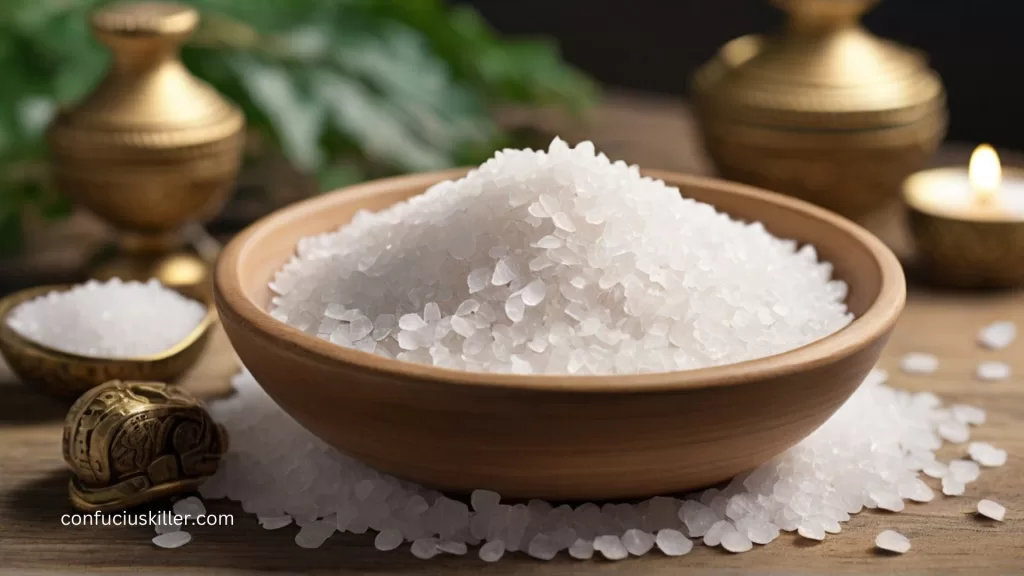
preservation and purification
In the Old Testament, salt was commonly used for preserving food, particularly meat, in a time when refrigeration was not available. Leviticus 2:13 states:
“Season all your grain offerings with salt. Do not leave the salt of the covenant of your God out of your grain offerings; and salt to all your offerings.”
This verse emphasizes the use of salt in sacrifices as a symbol of preservation and purification.
covenant
Salt is also associated with covenants and agreements in the Bible. In the book of Numbers 18:19, God declares to Aaron and his descendants:
“All the holy offerings the Israelites present to the Lord I give to you and your sons and daughters as your perpetual share. It is an everlasting covenant of salt before the Lord for both you and your offspring.”
Here, salt symbolizes the enduring nature of the covenant between God and the priesthood.
seasoning and flavor
In the New Testament, Jesus refers to his followers as the “salt of the earth” in Matthew 5:13:
“You are the salt of the earth. But if the salt loses its saltiness, how can it be made salty again? It is no longer good for anything, except to be thrown out and trampled underfoot.”
This metaphorical use of salt highlights the role of Christians in bringing flavor, preservation, and moral purity to the world.
symbol of wisdom
Colossians 4:6 encourages believers to season their speech with salt:
“Let your conversation be always full of grace, seasoned with salt, so that you may know how to answer everyone.”
Salt here represents wisdom, grace, and the ability to communicate effectively and positively with others.
Salt holds symbolic significance in the Bible, representing both physical and spiritual concepts such as preservation, purification, covenant, wisdom, and grace. It’s multifaceted symbolism reflects its importance in the cultural and religious context of biblical times.
Final Note

While you don’t have to engage in any religious reflection upon using a homemade toner with salt, occasionally blending spiritual elements into our daily routine won’t hurt us. As mysterious human beings, we come into this world to experience life; it would be interesting to view many little things as blessings from the Almighty.
Thank you for reading!
[END]
